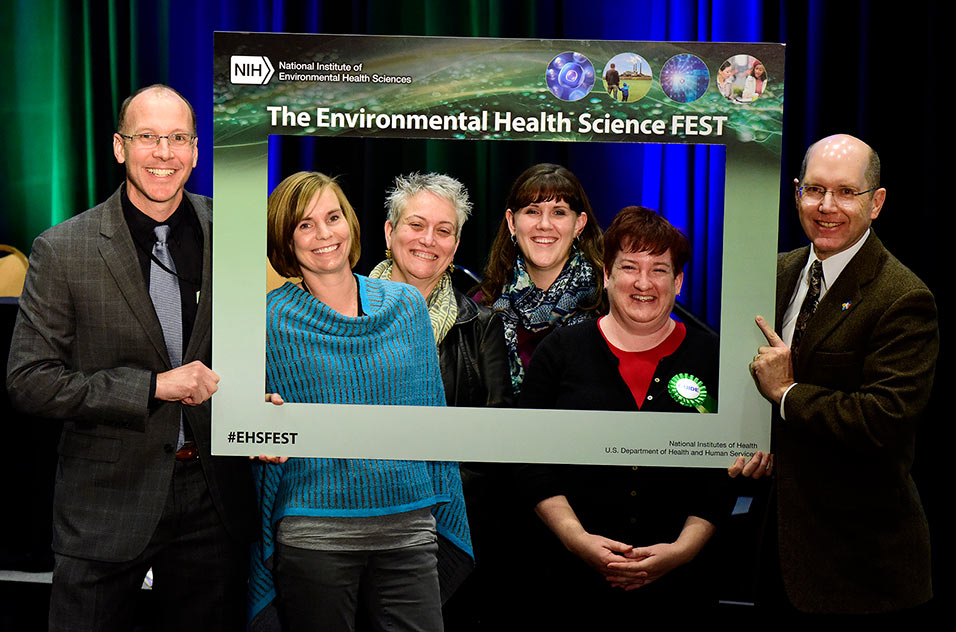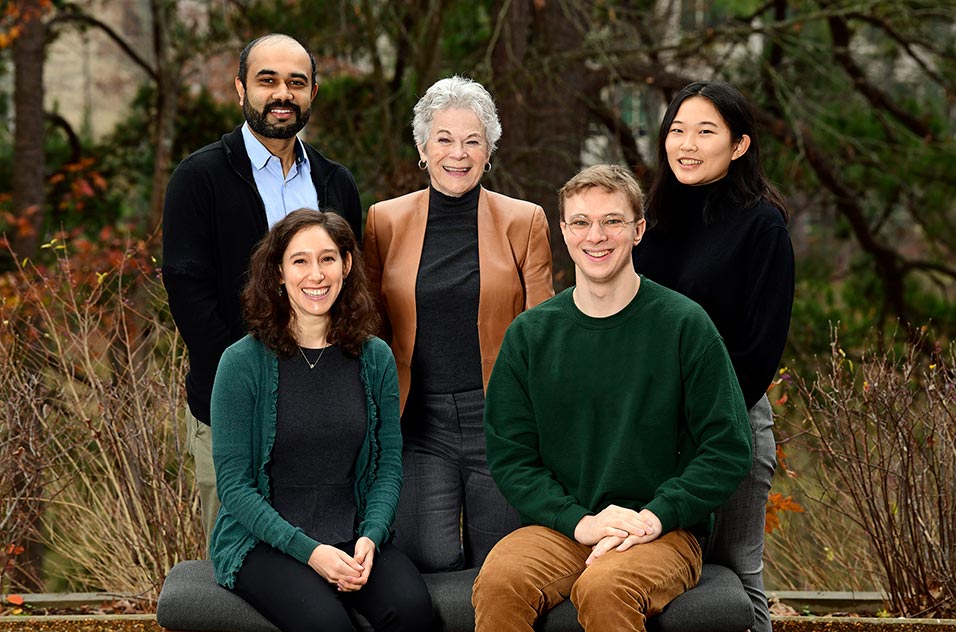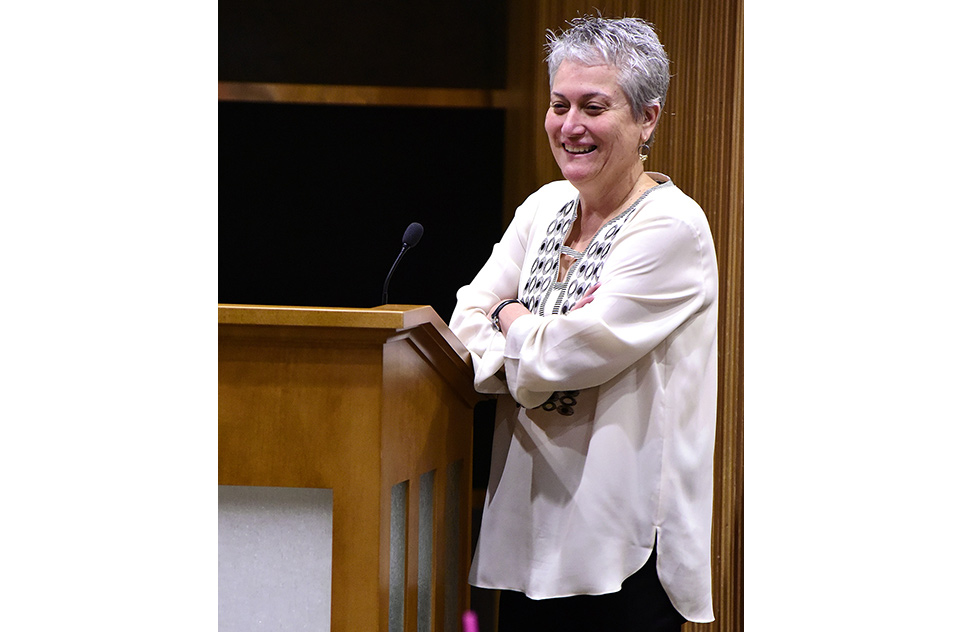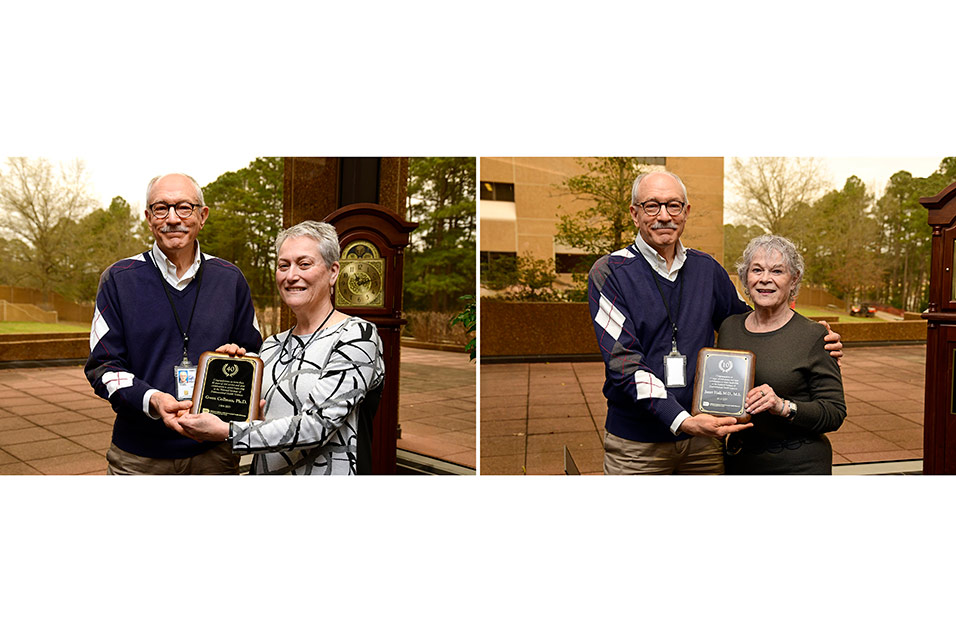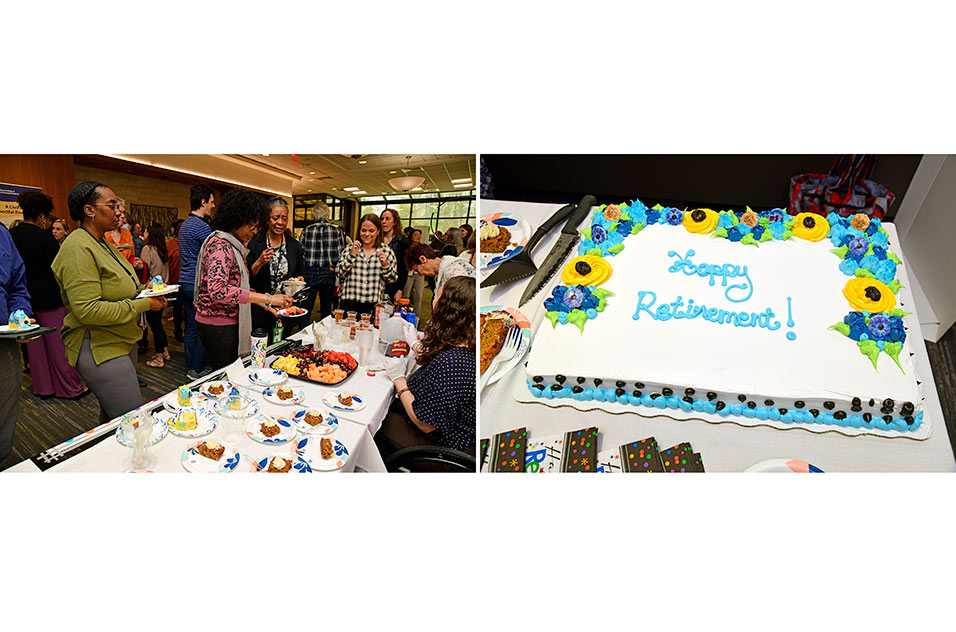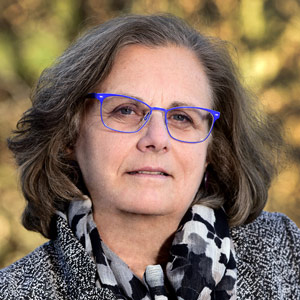NIEHS celebrated Gwen Collman, Ph.D., and Janet Hall, M.D., and their decades of dedicated public service during a March 24 reception at the institute.
"Dr. Collman’s and Dr. Hall’s contributions have left a lasting imprint on NIEHS — helping shape our scientific direction, strengthening our management efforts, and mentoring many across the institute," said NIEHS Director Rick Woychik, Ph.D. "Their leadership, dedication, and collaborative spirit have enhanced not only our research enterprise but also the culture of NIEHS."
NIEHS scientists, staff, and trainees gathered to honor and thank Collman and Hall, who most recently served as senior advisor to the director and clinical director, respectively. Collman and Hall retired at the end of March.
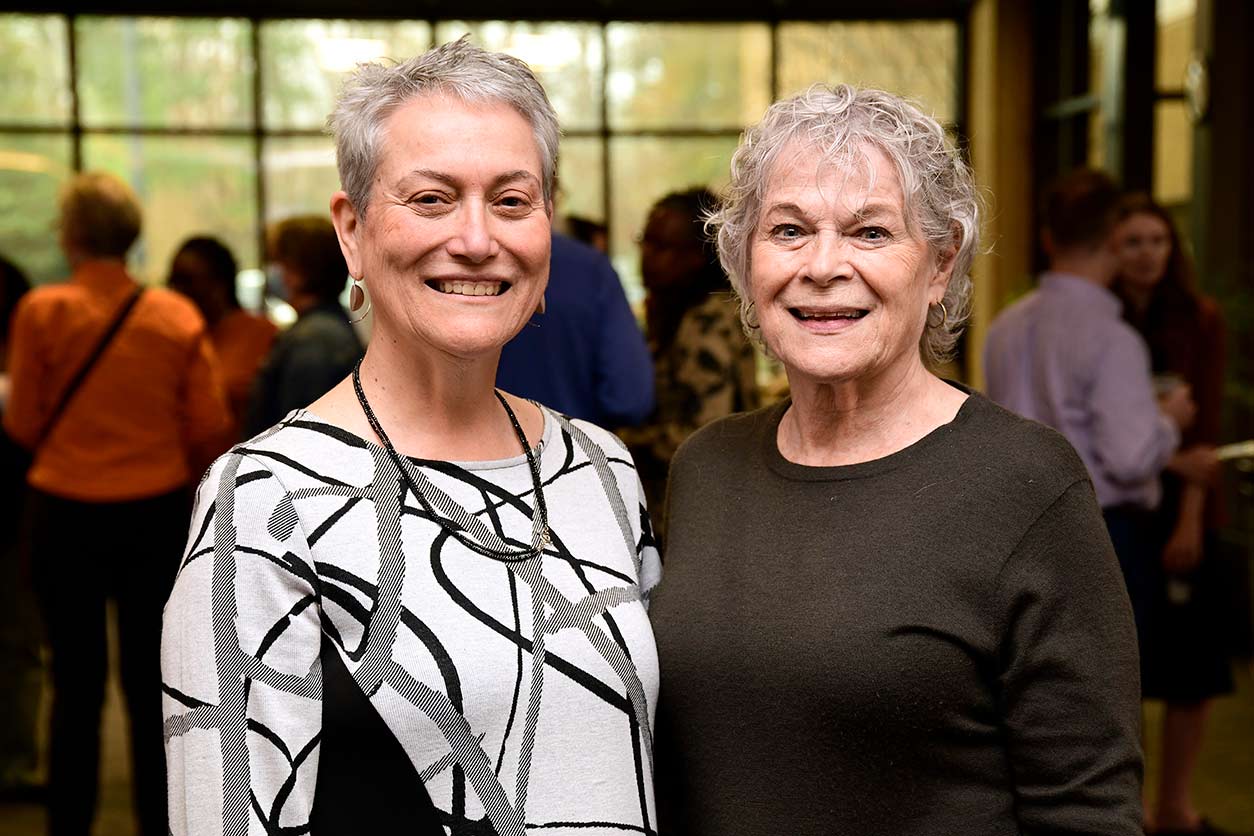
Championing exposures research and the exposome
During her 41-year tenure at NIEHS, Collman began as an epidemiologist in the Division of Intramural Research and then became a Program Director and Branch Chief in the Division of Extramural Research and Training (DERT). She was responsible for greatly expanding the NIEHS portfolio in population science and developed several important research programs, including the Children’s Environmental Health Centers with the U.S. Environmental Protection Agency and the Breast Cancer and the Environment Research Program with the National Cancer Institute.
Collman also directed DERT, which provides grant funding to researchers at scientific institutions across the U.S. and around the world. As director, she helped grow the institute's research portfolio to include work on the exposome, and the Partnerships for Environmental Public Health program to highlight the NIEHS commitment to community engagement.
Most recently, Collman served as Acting Deputy Director of NIEHS from 2019-2022, and then directed the Office of Strategic Coordination, Planning, and Evaluation. She has been the Director of the NIEHS World Health Organization Collaborating Centre for Environmental Health Sciences for the past three years. Collman also has been at the forefront of efforts to develop an NIH-wide collaborative program to study the human health impacts of extreme weather events and disasters. In these roles, she promoted collaborative science, established training programs to support the next generation of scientists, and forged partnerships focused on translation of research results to provide solutions to protect those affected by environmental exposures over their lifespan.
“I am incredibly grateful for the many opportunities I have had while working at NIEHS to build important research programs and work with many terrific scientists,” said Collman. “I will always cherish the relationships I have had with colleagues across NIEHS, NIH, and the extramural community around the world.”
Advancing clinical research
During Hall’s tenure as Clinical Director and Chief of the Clinical Research Branch, she transformed the clinical research landscape at NIEHS. Hall guided the direction of clinical studies and implemented clinical research programs to advance precision environmental health and ensure the highest standards of patient care. Under her leadership, the Clinical Research Unit (CRU), which is available to all the investigators at NIEHS, has grown not only in the number of protocols and investigators it supports but also in the complexity and diversity of the studies conducted. The CRU provides the research infrastructure for studying environmental effects on human health and disease, and for translating insights from bench and animal studies to humans, addressing diseases such as asthma, reproductive function, inflammatory disorders, and cancer.
Her vision led to the growing impact of the Personalized Environment and Genes Study (PEGS), which she co-leads with Alison Motsinger-Reif, Ph.D. PEGS is a North Carolina cohort study that not only helps scientists translate their work investigating the effect of genes and the environment to the human in CRU studies, but is also an incubator for developing cutting-edge tools to integrate multidimensional environmental and genetics data that is influencing the conduct of even larger scale studies. [See related article.]
An endocrinologist by training, Hall also led the Reproductive Physiology and Pathophysiology Group. Her team’s research focused on neuroendocrine interactions that govern reproduction in women and how energy deprivation, stress, and endocrine-disrupting chemicals affect the reproductive system.
“It's been a privilege to work with scientists, clinicians, and staff across NIEHS," Hall said. “I am confident that the next generation will continue to build on the foundation we built to understand how a person’s genes and environment interact, so that we can further personalize prevention and treatment strategies to improve health outcomes."
For a look back at Collman and Hall’s careers, and to view photos from the NIEHS celebration, explore the gallery below.
(Samantha Ebersold is a communications specialist in the NIEHS Office of Communications and Public Liaison.)





